Big things are afoot in the world of entertainment. Unless you’ve been living under a rock for the last year or so, you’ve probably heard of the Disney-Fox Merger. Well, as of 12:02 AM (an interesting converse of the old “2 Minutes to Midnight”, perhaps Disney signaling their missiles are already in the air…), March 20th, 2019, Disney finalized its $71.3 billion acquisition of 20th Century Fox. In short, Disney absorbed all of the media giant’s film and TV properties—not to mention a 60% controlling stake in Hulu—in what is the fourth-largest merger in history.
This means that, in addition to Star Wars, Marvel Studios, and nearly a century’s-worth of its own IP, Disney now owns: the remaining Marvel heavy-hitters, The X-Men, Deadpool, and The Fantastic Four; ALIEN; PREDATOR; AVATAR; THE SIMPSONS; FAMILY GUY; National Geographic; IT’S ALWAYS SUNNY IN PHILADELPHIA; and just about everything else the light touches. It’s cause for celebration for some, but the naked truth is that there are now just five major movie studios in the U.S. Five. Imagine if General Motors bought out Ford, or McDonald’s polished off Subway. Crazy, right?
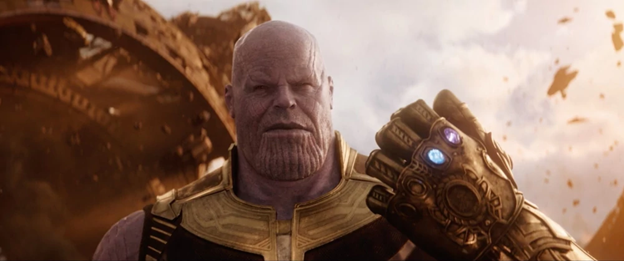
Perfectly balanced LOL
But it’s not like the theater is the only battlefield in this war, and Disney is still far from the only major player in the entertainment world. I know I’ve been hard on Netflix in the past, but if there’s one thing that gets my gears spinning, it’s heady, full-bore sci-fi. Imagine my surprise when, flipping through the app one day, I chanced upon something truly original. Brainchild of Tim Miller of DEADPOOL fame and David Fincher, Hollywood’s favorite grimdark director, LOVE, DEATH + ROBOTS is a collection of 18 animated shorts from studios across the globe, all featuring—you guessed it—love (well, more like gratuitous nudity), death, and/or robots. It’s a little bit ANIMATRIX, a whole lotta BORDERLANDS, and reminded me dearly of my early run-ins with anime courtesy of Adult Swim and VHS bootlegs that were, uh, more adult than that.
Netflix had great success with anthologies such as BLACK MIRROR in the past, but LOVE, DEATH + ROBOTS feels like something completely new. It flies in the face of everything we’ve been conditioned to expect from our media. For one, the episodes are short—anywhere from five to 15 minutes long. Two, crucially, there’s no formula. Sure, there are overarching themes (war’s a big one, fittingly) but every episode is different. There’s no set order, either, unlike the hyper-serialized MCU; in fact, Netflix presents the episodes in different orders based on your viewing (and possibly sexual) tastes. And while the show does lean heavily into a male audience and falls into some pretty Dudebro trappings at times, it is so much more than its gory, fleshy selling points.
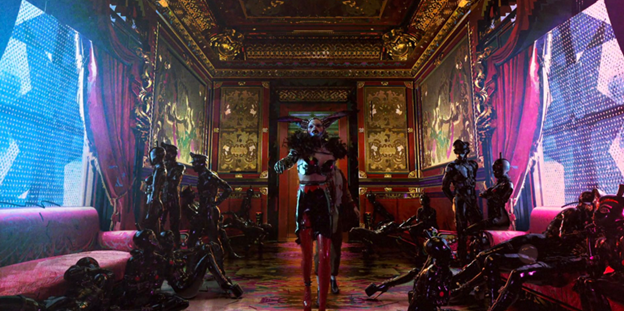
…so much more
“Three Robots” is a poignant and actually funny meditation on the folly of man, while “Zima Blue” offers more insight into the human condition and the search for meaning in 15 minutes than just about anything I’ve seen in mainstream film or television. “Fish Night” is so beautiful and so full of sheer wonder that it nearly moved me to tears. I can’t say that about anything Disney has done since 1994’s THE LION KING. (Okay, I won’t lie, I got a bit misty-eyed at the Stan Lee tribute before CAPTAIN MARVEL.) The best part? If Dickian navel-gazing isn’t your bag, you can always watch a bunch of dudes get Zerg Rushed.
However, I would be remiss not to mention the terrible, big-eared shadow being cast on the streaming world. There’s a reason Netflix shows like DAREDEVIL have been getting the axe left and right—and it’s not because they suck (even though they totally do). These “cancellations” are to be expected as Disney consolidates its holdings in preparation for the launch of its own subscription-based streaming service, Disney+. If you look closely at Disney’s 2019 release schedule below, you’ll notice a sizeable gap between ARTEMIS FOWL and FROZEN 2. That’s because Disney+ could debut as early as September 2019—and that’s when you can expect the bombs to really fly.
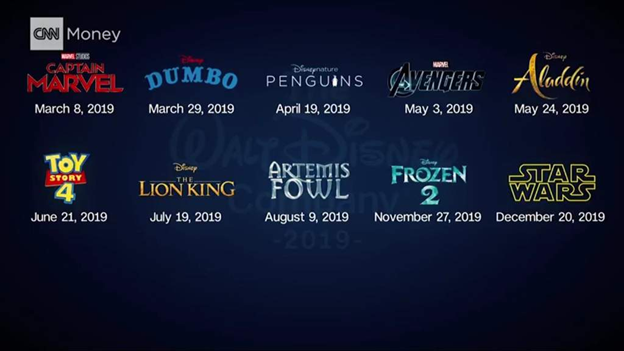
Sorry, HELLBOY
Why is this cause for concern for the current streaming champion? First and foremost is the fact that Disney+ will come loaded with all of Disney’s content—everything from its heritage animated films to its network offerings on ABC. By the same token, any such properties found on other platforms will be yoinked or snapped out of existence, à la DAREDEVIL. At the very least, most people will have to get both Netflix and Disney+ to cover their bases. Also, in response to Netflix’s increasing price tag, Disney CEO Bob Iger volunteered that Disney+ will cost “substantially below where Netflix is,” so the idea of a mass exodus is not too far-fetched beyond that. After all, even for all of its original programming, one of Netflix’s biggest draws has still got to be the likes of BLACK PANTHER and AVENGERS: INFINITY WAR. And this is to say nothing of Disney’s plans to produce new original content. Then, there’s the math.
In 2018, domestic box office revenue totaled a record $11.6 billion. Of that, 26% was earned by Disney, which shakes out to just north of $3 billion. Disney also had the top three grossing films of that year, in BLACK PANTHER at $700 million, AVENGERS: INFINITY WAR at $679M, and INCREDIBLES 2 with a mere $609M, which adds up to $1.988 billion. Yes, 2/3rds of Disney’s 2018 $3B haul came from just three films. And that’s just from the United States; we’re not even touching China here. What will really blow your mind? Disney released 10 films in 2018—a small number compared to other major studios, but when just three are raking in $2B? Yeah, there’s 10.
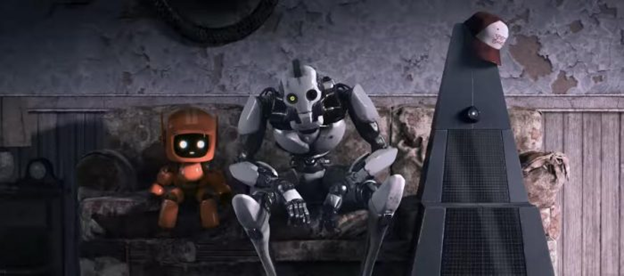
WALL-E 2 looks wild
Now that Disney owns Fox, it’s estimated that the mouse will go on to nab 35-40% of the box office cheese. And, while it’s too early to make an accurate prediction, I have seen one projection of $11.89B in box office revenue in 2019 (rather conservative, considering the upcoming AVENGERS: ENDGAME, STAR WARS: EPISODE IX, TOY STORY 4 and THE LION KING—again, all Disney). Anyway, 35-40% of that $11.89B ranges from $4.16B to $4.76B. So, in movie tickets alone, Disney will see a 38% to 58% increase in revenue in one year. Now just think about how easy it would be for Disney to pump out a blockbuster every month, and how those blockbusters would go on to become exclusive to Disney+.
Remember Disney’s 10 films? Netflix released nearly 1,500 hours of original content in 2018, comprising 51% of its programming. This, as execs have long touted, points towards Netflix further—and successfully—distancing itself from other, more traditional media providers and becoming a self-sufficient model. But having all the content in the world doesn’t mean a whole lot when it’s pumped out like drek from an overflowing storm drain. I’d say a good nine times out of 10 I log onto Netflix I log right back out without ever watching anything. Just as often (as I suspect many do), I question why I even have it—a dangerous thought when Disney+ threatens to upend the industry.
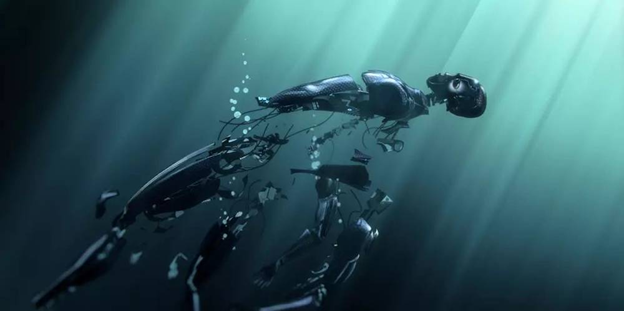
This. This is why I have it.
I also find that many Netflix Originals suffer from the same problems that turn me away from the likes of Disney in the first place. For one, they’re often just too long. I can’t tell you how many series I’ve abandoned midway through—not because I don’t have the time or inclination to sit through 10 or more hour-long episodes, but because I simply stop caring when a story could be better served in eight episodes or less. Disney’s bloated runtimes have undoubtedly contributed to an unhealthy trend in modern-day blockbusters, but a 155-minute THE LAST JEDI or a 182-minute AVENGERS: ENDGAME pales in comparison to a 10+ hour-long show with the same amount of story.
My other major grievance is that a lot of those “Originals” aren’t anything I haven’t seen before. BIRD BOX came shortly after the success of A QUIET PLACE, for example, and both ALTERED CARBON and MUTE appeared just four months after the release of BLADE RUNNER 2049. More frustrating than the shameless cash-ins, though, is the critical mass of sameish programming. I don’t have anything good to say about the supersaturation of superhero movies, but having 10 or 20 different murder shows is straight up overkill. Yeah, MAKING A MURDERER was a watershed moment, and MINDHUNTER was a triumph, too, but do we really need another EVIL GENIUS or CONVERSATIONS WITH A KILLER: THE TED BUNDY TAPES? It’s kind of hard to gripe about how formulaic Disney is when Netflix has been guilty of the same.
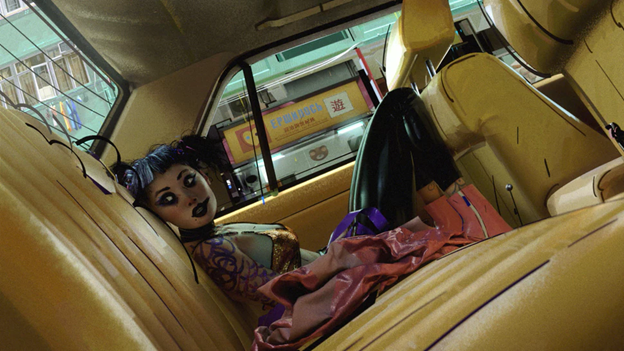
Seriously, just the same thing over and over
The biggest clash between Netflix and Disney is this: Disney simply doesn’t make adult content—at least not under the official “Disney” brand, which is the banner they’ve chosen for their new platform. They just can’t forego their tried-and-true formula without the risk of seriously alienating their base. (Remember New Coke?) With the heightened stakes of the merger, not only will Disney higher-ups be less inclined to take risks (as already evidenced by the numerous Star Wars spin-off cancellations after the flop of SOLO: A STAR WARS STORY), they’ll have to cater to an even lower common denominator as well. The acquisition might be an alarming power play, but, as some Disney character or another once said, “With great power comes great responsibility.”
At the end of all of this is the simple reality that Netflix’s ballooning library and Disney’s alpha-dogging of Fox mark just the beginning of what will shape the future of home entertainment. And that’s why shows like LD+R are so important. If Netflix is going to stand toe-to-toe with Disney, it must really differentiate itself. Netflix’s greatest advantage is its mobility, its ability to adapt on the fly, and its freedom to experiment. If bite-sized, “NSFW” programming proves popular with subscribers, it’s a sure bet Netflix will ramp up production of such material. And considering LD+R’s origins, Season 2 could be greenlit before we know it.
Recently, our film editor, Sergio Zaciu, posed the question of when Netflix will “make their Matrix, their Pirates of the Caribbean, or their Terminator”. To that I say, it has already made something far more important: a direct counterstrike to Disney’s particular brand, an irreverent, thoughtful, wonderfully imaginative, and totally NSFW love letter to the fringes of popular culture. I won’t say I’ve picked a side in the streaming wars just yet, but if LOVE, DEATH + ROBOTS is any indication of the direction Netflix is headed in, I’ll fly out to the front lines in Lucky 13.


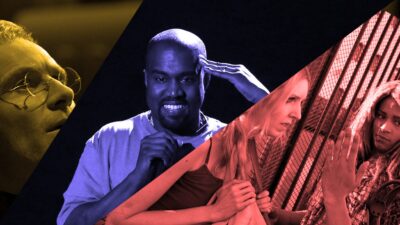








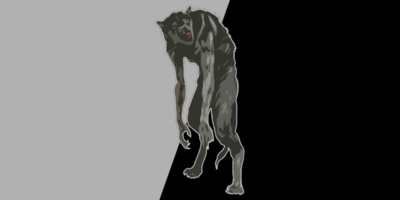
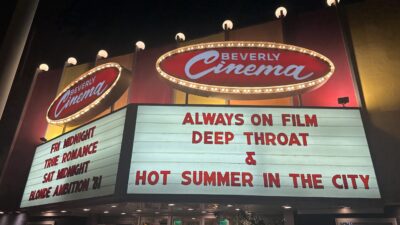



Comments